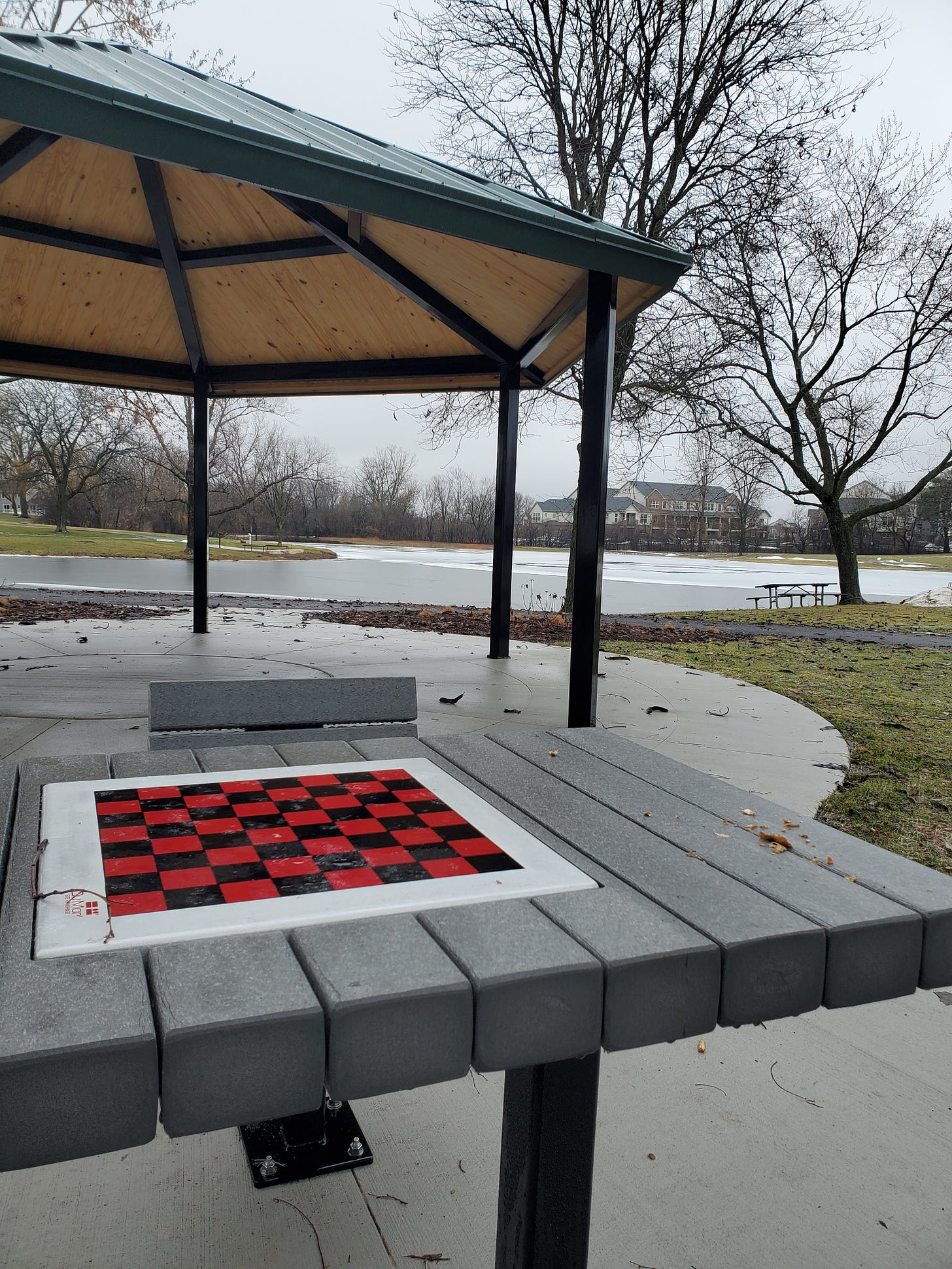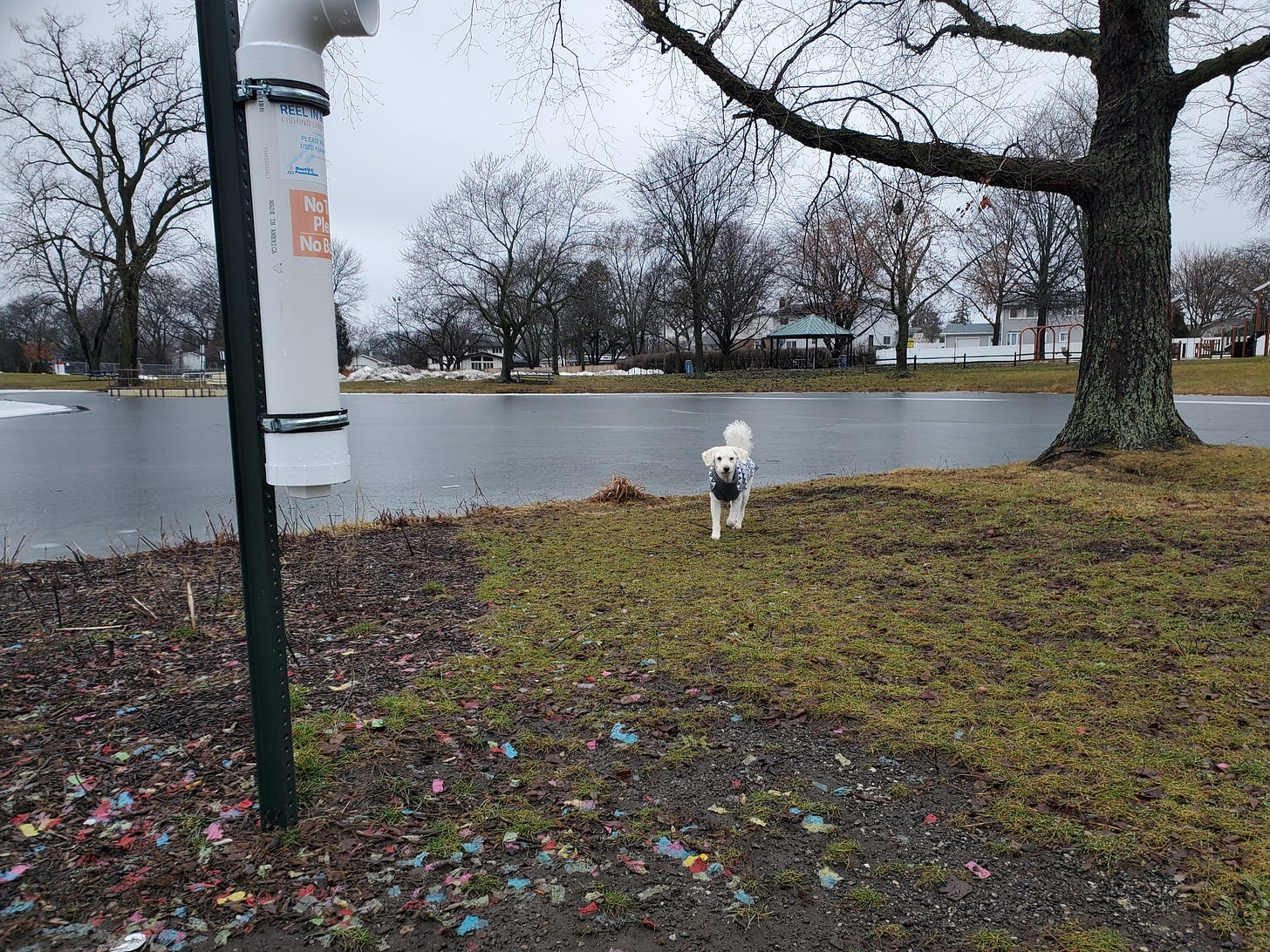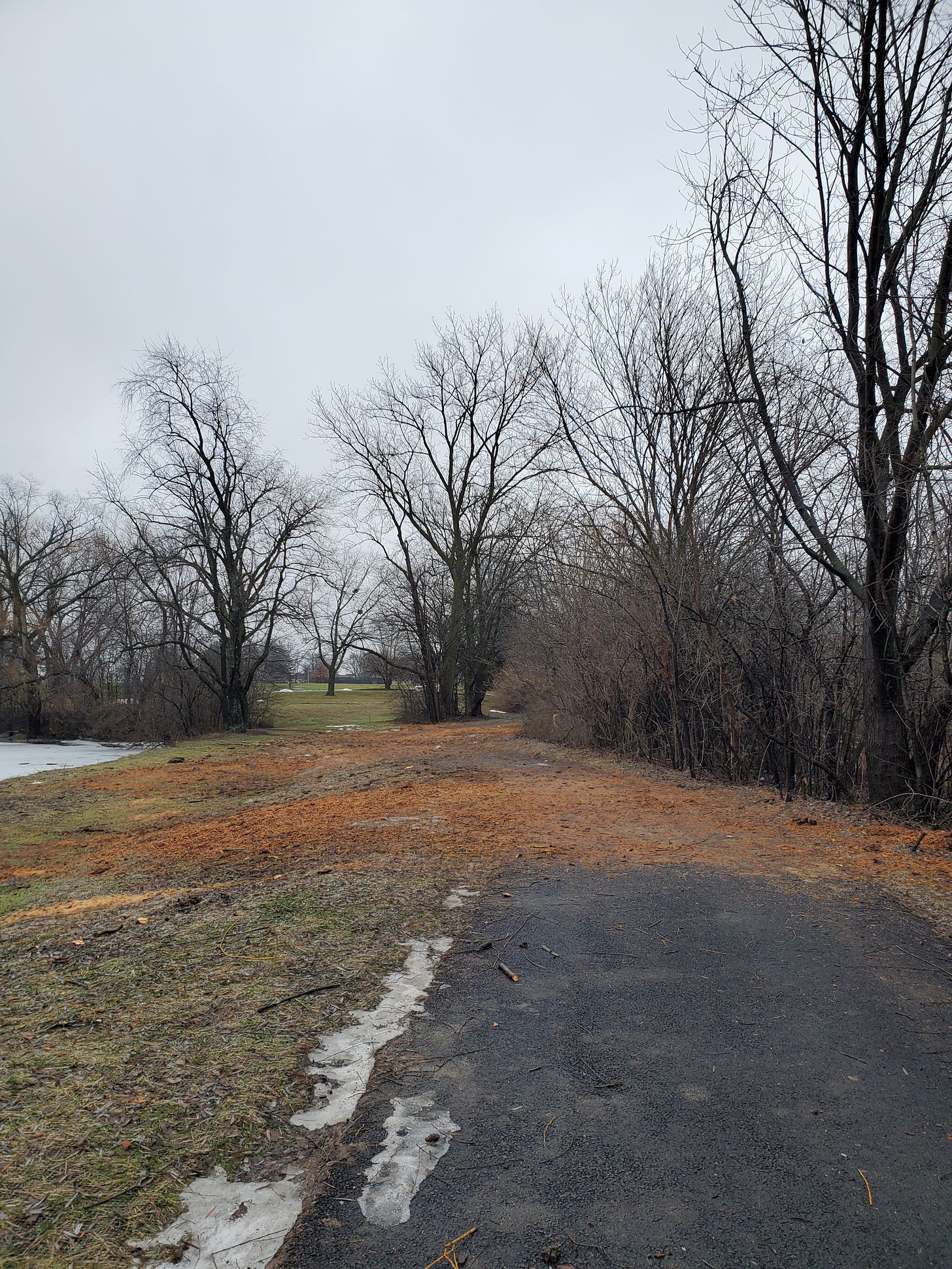The following is a pulse-check on American Health Care, Sick Care, and the caring professionals who continue to do their best. Give it a listen by clicking the “play” button above (I narrate myself and add a few tangents for flair), or read the abbreviated version below. Either way, thanks for being here!

It’s time. I’m looking into the belly of the beast, applying my x-ray specs, and casting an optimistic gaze into a murky future. Today, I’m going to write about care … and I’m going to do it through the lens of hope.
For those who have read/listened to my previous posts, you may notice they’re seasoned with a healthy dose of cynicism. A dab of hopelessness. A thick coat of despair. (At least as it pertains to Healthcare).
Today, I don’t know if I’m writing Future Fiction, Sci-Fi, or if I’m writing a path forward for myself and my colleagues. I appreciate you being here to journey with me, because as I consider the silent downfall of Rome… and the skin I’ve got in the game… I need to believe it can all be better than it is, and that it’s not all crumbling beneath my/our feet.
Okay, off we get…
Expert in a Dying Field?
My word of the year for 2024 is “Cultivate”. Last year’s word was “Enough” and it was right on. I consider the word “Cultivate” and its many meanings. What do I hope to cultivate in my words, actions, conversations, silences, pauses, and next steps. I am in the process of becoming a fitness instructor. It is with the hope/intention of helping myself and others find/maintain joy in moving our bodies in healthful ways, to keep moving over time, and to adjust to our abilities as they change across the spectrums of life and experience. I’m taking my time with classes in community college, and I’m not in a hurry to get there.
In the meantime, I work in healthcare as a Nursing Professional Development Generalist. I teach folks in the workplace, specifically in Home Health. It’s a really cool job. Sincerely (in the audio above, I elaborate more about Home Health and what it entails, including some of the documentation and reimbursement nuances. You can find out more at Medicare.gov).
In my work, get to welcome people to Home Health and Hospice, often for the first time ever. EVER. Like me, many of the teammates who join our organization have never stepped foot in the home of a patient. It’s a fearful step for many, and puts them and their patients in a vulnerable position. You hope to be safe going to work, and the patients/care partners hope you’re not going to make them leave their home for any reason.
See, here’s the thing, most people just want to be home.
Seriously.
Almost all of our patients just want to be home. (Remember the hard parts of the pandemic — visitor restrictions, staffing challenges, etc.)
Except so many many MANY of them can’t.
They either don’t have the ability or resources to stay home safely.
(If you want to learn a bit about Home Health assessments and the data that Medicare is gathering about patients in the community, check out the OASIS Data Sets and the assessments/documentation that are required to be reimbursed. Also check out the change from Fee For Service to Value-Based Purchasing)
Not all of our patients are lacking, but many many MANY more than I ever would’ve expected don’t have enough.
We (Healthcare Workers) got into this to take care of humans. In order to keep doing it, we need to provide documentation that proves our worth. Otherwise, Daddy Medicare won’t pay us.
Home Health is Essential
Being new in Home Health, I delighted in the ability to care for my patients one-on-one. Or, to care for them and their care partner(s) (a spouse, adult child, cousin, sibling, friend, paid caregiver, etc.). So much of my job as a home health nurse was to train. Training patients/care partners all that I know about the human body, diseases and their usual trajectory, medications, devices, wound care, bodily care, home safety, oxygen… basically, as a Home Health Nurse, my job was to teach you what I’ve learned over the last (almost) 15 years of my career so you can do it for yourself at home.
Yikes.
No pressure.
I mean, I had to go to school for a few years, get a degree, pass state boards (licensing exam), write a resume, and apply for a job to eventually get the experience that brought me to your doorstep. I had to prove my skills and abilities in written and oral examinations, clinical settings with an instructor on real patients, or simulated settings in a classroom. A lot went into my learning, and a lot’s gone into my retention of sooooo muuuuuuuch information…
Then I come to your home and hope to instill these years of experience into your brain.
To do so, I have to distill what I know into a tincture. I have to make it palatable so you’ll agree to take it (and consistently). I have to help you find the motivation to participate in your care. I have to basically convince you that you’re able to do this. Then I get to watch you learn and grow.

Sometimes we can learn & grow.
Sometimes we can’t.
You try. You always do. You try as much as you can, given the years of time it’s taken us to get to this point. And all the obstacles along the way.
It’s almost like the system is built to keep us sick:
Food advertisements encouraging us to consume excessive amounts high-sodium/fat/carb foods to complicate our bodies with problems like diabetes, heart failure, obesity
Screens keeping us sedentary, rarely walking and certainly not getting our heart rate up multiple days a week for 30 minutes at a time
Media keeping us depressed and anxious so we’re fearful to leave our homes, fearful of our neighbors, fearful of the end of the world, fearful…
Myriad addictive substances and their known (and unknown) consequences (alcohol, nicotine, food/flavor additives, etc.)
As a nurse, I’ve consistently met people when they’re already sick. It’s par for the course. Healthcare in the United States isn’t that at all. It’s Sick Care. Sure, there are preventative programs and wellness visits at doctor’s offices and through employer insurance programs.
Without divulging too many details, I’ve met the healthiest 103-year-old and the sickest 20-something-year-old. The patients, along with the people who care for them.
Everyone’s trying.
Keep It Moving
Am I changing careers? No. Not yet, anyway. I romanticize(d) just turning my back on Nursing and Healthcare, washing my hands of it all, and working in a coffee shop for the rest of my days. Forget the anatomy, physiology, microbiology, pharmacology… Let my credentials expire, my license lapse, and it all becomes a distant memory. I fantasize(d) letting the shit show of Modern American Healthcare become “their” problem.
Except, I couldn’t.
“They” who??
This is my problem.
I am a Healthcare Consumer. I will always have skin in this game. Me, my family, you, and everyone you know (in the US) — we are all Healthcare Consumers.
I’m a Healthcare Consumer with a voice at the table where important decisions are made (personally and professionally).
You are a Healthcare consumer with a voice at the table (policies, elections, etc.).
With these years of experience and wisdom comes power. Words have power. And, in the words of Spiderman’s Uncle Ben: “With great power comes… tremendous burnout and moral distress”…? Wait, no that’s not how it goes…
It did. It does, and it did. It’s taken time to name that feeling. To grapple with it. To sit with it. To decide what to do with it. Time. And therapy. And medicine. And conversations, connection, community.
I didn’t just wake up one day thinking “oh, I just want to exercise for the rest of my days and try to make money doing it”.
What led me to deciding to become a fitness instructor was finding myself at the apex of my nursing career and not knowing what to do with what I saw.
I may not know exactly what to do, but I know that I/we need to get up-stream. I believe it starts with healthful movement. And I’ll figure the rest out later…
Where Can I/We Look for a Guide?
I regularly meet people from everywhere.
I meet people (patients and other clinicians) who have lived and worked across the country and around the world.
America, we’ve got some work to do.
People and families from other countries tend to have the care model in the home figured out. Multigenerational homes, adult children living in close-proximity their parents, people who are prepared to care for others in their time of need.
Many “Americanized” families (those who’ve lived here for 2 or more generations, let’s say) live in silos. My home, my body, don’t touch my stuff. Stay off my lawn. Mow your grass. Mind your own business. Things and people are replaceable, disposable, dispensable. We don’t talk about Bruno-no-no…
Huh — it’s almost like being isolated and disconnected from real-life community is a detriment to our society??
Elsewhere? Cultures and families in other countries/regions know: It takes a village. A community. We care for and about each other.
Home Health opened my eyes to what help/caring looks like in community, and what it doesn’t.
The pandemic opened my eyes to the value of Healthcare Workers, and the impact when human lives are disposable/dispensable.
It’s not the same everywhere. We may need to look far and wide for models of care around the world that can be implemented in the US (or look closely at the homes/communities in our urban and suburban areas to see what’s working and what’s not).
We need to start Nursing our Communities.
The Weight
I’ve met Healthcare Workers (HCW) who headed straight for New York at the beginning of the COVID-19 Pandemic. Who lived and worked there, isolated from their families and all other humans except for their patients and colleagues. Cared for patients. Fulfilled their contract. Then, did it again. And continue to do so.
I’ve met HCW who entered patient rooms with inadequate personal protective equipment for the sake of their patient’s life and safety.
I’ve met HCW who entered rooms wearing PPE, fearful of this unknown virus with unknown consequences, in order to hold up a tablet computer with video capabilities for the physician/doctor/provider outside the room whose life was somehow more precious than theirs, and had to be protected through walls instead of masks. (Let that one marinate).
I’ve met HCW who held tablet computers with video capabilities up to the faces of the ventilated and dying so their loved ones could say goodbye. Who remained at the bedside so the patient wouldn’t die alone. The human.
I’ve met HCW who have held the hands and bodies of the living and the dead.
I’ve met HCW from understaffed hospitals, nursing homes, rehab centers, doctor’s offices, call centers, Departments of Correction, school districts, and other home health agencies.
And somehow, they keep showing up. Healthcare Workers KEEP SHOWING UP. Every Monday, they keep showing up.
They’re carrying the baggage of Healthcare before the pandemic, during, and SINCE…
The weight and trauma of the pandemic didn’t stop because the “state of emergency” ended. The damage remains, and MUCH CARE IS NEEDED RIGHT NOW (do you hear me, AI and Chat GPT and media algorithms??).
While we figure out how to nurse our communities, we also need to Nurse Our Healthcare Workers. And Nurse Our Caregivers.
Clearing the Lens of Hope
My job has been a gift of an experience in so many unexpected ways. From the Pit of Despair, I am discovering an alternate path forward. It’s just taking me time to get from A-to-B-to-C-to-Dance. Maybe I’ll get to exercise with people in hospice? ;)
I thought I would just teach people how to do Home Health.
I have learned so much more than I could’ve dreamed. I continue to learn & grow.
All this experience has opened my eyes to the depths of despair and the heights of hope woven through our communities.
Woven through My Community.
It has shone a light on a path forward that, somehow, feels as timeless as the Old Testament and as new as Artificial Intelligence. Someone, please, figure out some helpful uses for technology to take better care of humans. Quickly. The HCW and the patients.
I didn’t turn my back on Healthcare. I didn’t flip the tables. I am pursuing something that seems like it will be fulfilling, and figuring out my path forward. I’m making it up as I go.
My hope is that, with every Monday that I get to go to work, welcoming new people with their desire to take care of other humans, joining what I believe is the last best level of care (home/community): May I continue to help them hone their tools to do it well.
May I continue to help people hone their tools to give and receive care well. May I continue to nurse the carers, so we may continue to nurse our communities.
Amen.
Thank you for giving me your time and attention today. I hope that you learned a little bit. I hope that you’re taking good care of yourself. Breathing. Hydrating. Moving. Accepting help. Asking for it. I hope that everyone is nice to you.
Take good care.
Love,
Jessie
You are hope
You are light
You are strength
You are love
Thank you for being here




Thank you for this. I am involved in a fledgling initiative "Patient Clinician Alliance" which is collecting stories like yours. The mission is to amplify voices of patients and clinicians to deal with the "dumb" systems and human factors causing burnout, and "great resignation" in Healthcare. I hope it's ok that I shared this with our steering group. Go well and be well.